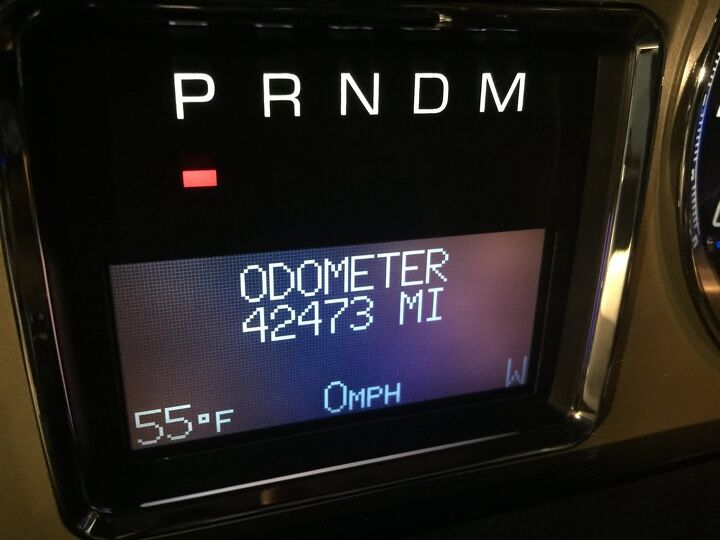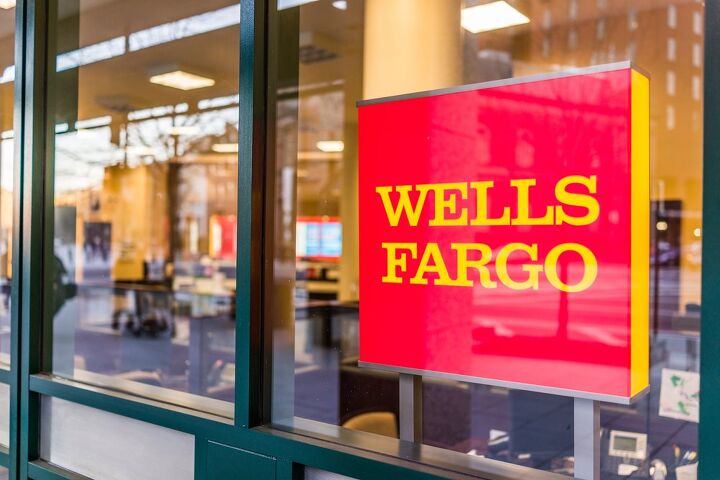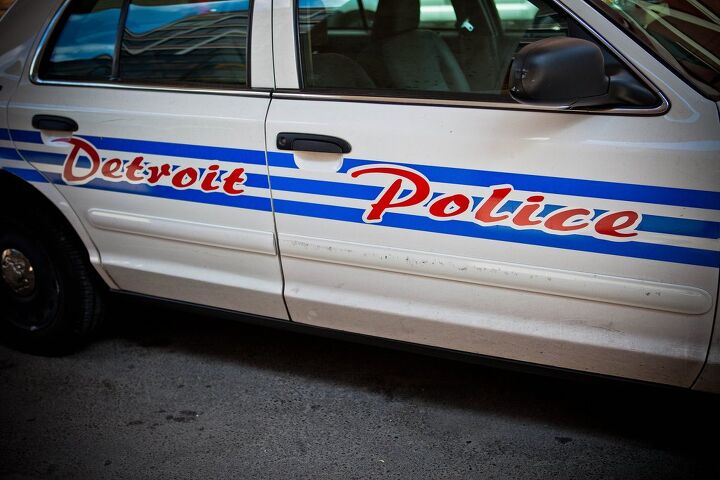#Scams
FTC Launches “Combating Auto Retail Scams” Rule
The Federal Trade Commission (FTC) has announced the finalization of the new Combating Auto Retail Scams (CARS) rule designed to prevent auto dealers from utilizing bait-and-switch tactics and hidden junk fees. While these are technically illegal already, CARS is supposed to give the FTC more leeway in determining what constitutes fraud and serve as a warning to dealers that may be crossing the line.
Study Claims Odometer Rollbacks Are Making a Comeback
The latest research from Carfax has led the company to report that more than 1.9 million vehicles on the road have rolled-back odometers – noting that this represents a 7 percent increase against the previous year.
“Many people think odometer fraud disappeared with the invention of digital odometers,” stated Emilie Voss, Public Relations Director for Carfax. “But that couldn’t be further from the truth. We’re still seeing the number of vehicles on the road with a rolled-back odometer rise year-over-year.”
Opinion: Automakers Are Overstepping Their Boundaries
General Motors now requires salaried employees operating in the United States to disclose their coronavirus vaccination status. As confirmed by the automaker on Thursday, the decision is supposed to help the company determine what percentage of its own workforce is vaccinated so it can make better decisions about which safety protocols to implement. But your author is under the assumption that “as many as possible” will always be the preferred answer.
Earlier in the month, GM forced all salaried employees to disclose whether or not they were immunized for COVID-19 using the automaker’s internal network. Those answering to the affirmative were required to submit proof of vaccination by last Monday. But it sounds as though the manufacturer is just getting warmed up for more invasive activities.
Ford Postpones On-Site Work Until 2022, Considers Vaccine Mandates
On Wednesday, Ford Motor Co. told employees that it would delay plans for on-site work due to coronavirus concerns relating to the delta variant. Non-site-dependent staff are being told they stay home for the rest of 2021, while line workers will still be required to come in so long as there’s a job to be done — creating a dichotomy between white and blue-collar workers.
While Ford has encouraged some teams to come back to the office for various projects, it has repeatedly delayed its return-to-work timeline. Workers now being told to stay home until 2022 were previously informed they’d be coming back to the office in October. Before that, everyone thought it would be business as usual by the summer. Now the company is adopting a policy that has most people staying home even after 2022 as often as possible while it considers mandating vaccines.
Tales From the Service Desk: Extended Warranties and the Selling of a Scam
During my brief career as a service writer, there were many aspects of the job that I found annoying, but perhaps nothing got my Irish up on a near-daily basis like the extended-warranty business.
Wells Fargo Settles for $386 Million in Auto Insurance Suit
Wells Fargo will reportedly pay customers a minimum of $386 million to settle class-action claims that the bank covertly signed customers up for auto insurance they did not want or need.
Back in the summer of 2017, the bank found itself implicated in widespread auto insurance and mortgage lending abuses. Over a year later, Wells Fargo was slapped with a $1 billion fine from the Consumer Financial Protection Bureau and Office of the Comptroller of the Currency to settle U.S. investigations into the company’s insurance and mortgage practices.
While the auto insurance plan ended in 2016, roughly 800,000 customers (or 600k by Wells Fargo’s estimates) were believed to be affected by the auto insurance issue over roughly a four-year period. For most, that meant being overcharged for insurance they didn’t need., but some customers ended up with their vehicles repossessed and their credit rating demolished, promoting the class-action suit.
New Lawsuit Alleges Wells Fargo Execs Knew About Auto Insurance Scam for Years
Roughly a year ago, Wells Fargo got itself into hot water over shady business practices relating to widespread auto insurance and mortgage lending abuse. After a lengthy investigation, the Consumer Financial Protection Bureau and the Office of the Comptroller of the Currency eventually suggested Well Fargo pay $1 billion to “resolve” the governmental probes. President Donald Trump then said federal agencies needed to go after the bank hard to set an example. The agencies came back with a consent order saying it was time to pay up.
Despite the insurance issue affecting an estimated 800,000 customers over a four-year period, Wells Fargo seemed able to recover from the scandal and move past it. However, new allegations claim the bank’s leadership was aware customers were probably being overcharged several years before it finally cancelled the program.
Wells Fargo Fined $1 Billion For Auto Insurance Scandal, Mortgage Misdeeds
Wells Fargo is getting slammed with all kinds of penalties over shady business practices. Currently prohibited from growing its business as investigators look into its practices, the bank has restructured itself after it was implicated in widespread auto insurance and mortgage lending abuse in the summer of 2017. It’s also still coping with an earlier scandal involving local branches opening fake accounts for customers.
Last week, the Consumer Financial Protection Bureau and the Office of the Comptroller of the Currency suggested Well Fargo pay $1 billion to “resolve” the governmental probes into those issues. That changed today when the bureau filed a consent order announcing it was time for the bank to pay up.
The fine applies to the mortgage lending issues, as well as Wells Fargo’s past practice of charging thousands of auto loan customers for insurance they didn’t need and often didn’t even know about. The move caused some borrowers to default on their loans, resulting in their vehicles being repossessed. The consent order mandates that the bank remediate those customers.
Ferrari Dealership Altered Odometers on Used Vehicles for Profit
News broke earlier this week of a Ferrari dealer embroiled in a lawsuit after a salesman accused the company of authorizing the use of devices that roll back vehicle odometers. Despite being a great way to improve the valuation of a used car, the practice is generally frowned upon — our best guess is because it’s super shady and totally illegal.
However, it was unclear if the issue revolved around one grubby dealership in Palm Beach or a systemic problem that included the manufacturer. The DEIS Diagnostics System that made the shenanigans possible does require online authorization from Ferrari corporate offices. But it could be that someone at home base didn’t know the extent of what the tool was actually being used for.
Unfortunately, they did. This week, details emerged from the case files of Robert “Bud” Root’s lawsuit against New Country Motor Cars. Back in April of 2017, Ferrari issued a memo to the dealership that can best be paraphrased as “cut it out.”
Detroit Police Officers Confess to Car-stripping Scheme
Four officers from the Detroit Police Department pleaded guilty to extortion charges this week, with another two being indicted, after receiving bribes from body shops looking for stolen and abandoned vehicles obtained by the city. Federal investigators have been looking into the scheme, which involves shops collecting thousands of dollars from insurance companies for unnecessary repairs, for well over a year.
The accused officers are believed to have reported stolen or abandoned vehicles to a single towing company, rather than police dispatch. From there, the towing service would pay them a $50 to $100 “finders fee” before notifying the car’s owner that it had been stolen and sustained unspecified damages. Fortunately, the towing service always knew of a repair shop that would “waive the deductible.”
The cars were then stripped so the claims adjuster could quote the vehicle for thousands of dollars in damages.
Dealers Being Targeted by Used-car Fraud Ring
A new type of sales fraud is taking advantage of lenders’ and dealerships’ automated payoff systems. Basically, criminals have begun selling high-end used vehicles that have been obtained illegally and vanish before anyone is the wiser.
Mark Maida, the CEO of AutoBuy, has said his Florida-based company was on the receiving end of the scam in 2016 and wants to warn other prospective buyers before the same thing happens to them. He doesn’t believe it was an isolated incident and claims there have been other dealers and lenders across the state that have been affected by the swindle.
New York Dealership to Pay $298,000 After Scamming Customers With Phony VIN Etching
Like all companies, auto dealerships are in the business of making money and dealer-installed options are frequently a good way to markup a vehicle’s final price. While that’s great for shops, new cars don’t really need rustproofing or fabric protection. Of course, that doesn’t keep salesmen from occasionally tacking those services on for a few hundred dollars extra though.
One optional extra you actually may want to take advantage of is VIN etching. While this is something you can do at home for cheap, most dealers will gladly do it for a significantly larger fee. But it doesn’t do you any good if the store doesn’t actually follow through with the service and charges you for it anyway — which is exactly what happened at a Nissan dealership in New York.
Nissan of New Rochelle was caught charging customers for an unwanted VIN etching service that they frequently didn’t even apply to cars. Now the dealer has agreed to pay nearly 300 customers more than a quarter of a million dollars in restitution and issue a public apology for its shady practices.
Wells Fargo to Refund $80 Million of Unnecessary Car Insurance It Forced Onto Customers
Wells Fargo says it will reimburse roughly $80 million to customers erroneously charged for auto collateral protection insurance policies. Customers will be remediated after roughly 800,000 customers were essentially forced to purchase unnecessary auto insurance, despite many of them already having active policies.
The banking and financial services firm reviewed policies started between 2012 and 2017 and identified approximately 570,000 customers who could have been negatively impacted. It plans to issue refunds and other payments as compensation, especially to those who defaulted on their auto loans as a result of being overcharged.
Shenanigans: Toyota's 'Flying Car' Doesn't Fly and Isn't a Car
We need to have a candid discussion about flying cars. Automobiles and airplanes entered into the mainstream around the same time, and we’ve talked about combining them into a singular platform ever since. While nobody has successfully pulled it off, we keep acting like the technology is right around the corner. The closest we’ve gotten are the Terrafugia Transition and Pal-V One. However, both of those products make major on-road sacrifices, undergo a pre-flight metamorphosis, and require regular access to a runway. They’re still not representative of anything we’d consider a real car.
Lack of success hasn’t stopped automakers from dabbling in the field of aviation. Toyota has purchased Cartivator Resource Management in the hopes that its “flying car” expertise will yield a vehicle capable of lighting the torch at the 2020 Olympic games in Tokyo. Still, based on the firm’s progress to date, we can only imagine the attempt ending in a globally broadcast fiery disaster.
Uber to Repay Millions After Stiffing NYC Drivers for Years
Uber has messed up — again. The ride-hailing company admitted to shortchanging New York City drivers to the tune of tens of millions of dollars due to miscalculated payments. It’s the second time Uber has been caught mishandling payroll, with the latest fiasco resembling Richard Pryor’s banking scheme from Superman III.
In its agreement with drivers, Uber is supposed to calculate its own percentage after taxes and other fees. However, it ended up calculating its New York commissions on total cost, including those expenditures. This has resulted in NY-based drivers receiving slightly lower fares ever since the November 2014 agreement. It doesn’t amount to much per fare but, when compounded by several thousand drivers and a handful of years, it adds up to millions. Regardless of how unintentional the error may or may not have been, the affected drivers are incredibly displeased.






























Recent Comments